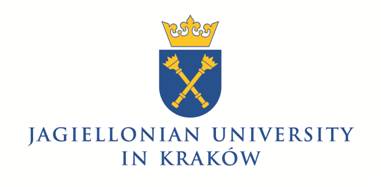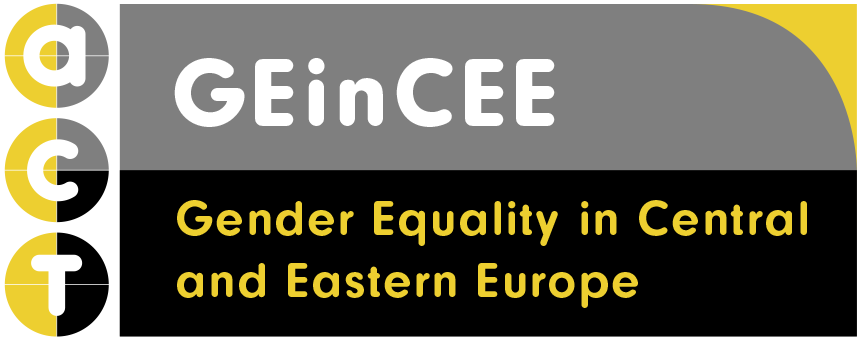In this text I will present the new unit at Jagiellonian University, that is strengthening the struggle for equity and safety at university. I will present the duties of the department and describe two aspects in which we see the need to fight for a non-discrimination at academia I will close this post with presenting plans and non-imminent goal.

Since the beginning of year 2020 Jagiellonian University has been enriched by a new department, which among other responsibilities related to physical and psychological wellbeing of the university’s community, has equal rights in consideration. The Department of Safety, Security and Equal Treatment consists of 8 people with expertise in legal, sociological, psychological, educational as well as security and safety backgrounds.
Department has two main goals:
- coordination of activities for personal security and equal treatment of members of the Jagiellonian University community;
- providing support to victims of discriminatory activities and violating their personal security[1].
Its duties are widespread:
From diagnosing the level of safety and equal treatment by:
- monitoring the security situation and equal treatment of members of the Jagiellonian University community,
- conducting, in cooperation with other organizational units of the Jagiellonian University, cyclical research on the sense of security and discrimination among members of the Jagiellonian University community, with particular emphasis on Jagiellonian University students and PhD students (including in student houses of the Jagiellonian University),
- analysis of the level of security and the extent of the phenomenon of discrimination at the Jagiellonian University, including the occurrence of crimes and offenses, as well as interventions undertaken by the police and other services responsible for maintaining public security and order;
Through taking preventive actions consisting of:
- conducting educational, information and promotional activities for personal security and equal treatment of members of the Jagiellonian University community,
- promoting safe behaviors and methods of avoiding or dealing with threats,
- reviewing the security of applications for the intention to organize events at the Jagiellonian University and projects organized by the Jagiellonian University;
And coordinating national and international cooperation in the field of security and equal treatment, including:
- as part of cooperation networks (e.g. AUCSO, The Guild) and participation in projects,
- with state services, municipal units and other external entities (including foreign entities) to secure events and other events organized at the Jagiellonian University;
As well as cooperation with the organizational units of the Jagiellonian University in the field of developing procedures and guidelines for dealing with:
- threat of crimes and offenses within the Jagiellonian University, including opinions on procedures and guidelines of conduct developed by other organizational units of the Jagiellonian University,
- reacting to events that constitute discrimination against members of the Jagiellonian University community,
- implementation of the principle of equal treatment in projects financed from external sources,
- practical verification of the organization and conditions of evacuation at the facilities of the Jagiellonian University;
Last but not least taking action in connection with reporting by the members of the Jagiellonian University community of cases of violations of personal security and the principles of equal treatment, and providing support to victims primarily by providing information on the possibilities of quickly and efficiently obtaining specialist assistance.
Among those various responsibilities I want to bring your attention to these referring to developing procedures and guidelines for dealing with unfair treatment as well as conducting educational, information and promotional activities for members of the Jagiellonian University community.
If we look at academia as a place where people learn[2] and looking more broadly: they develop intellectually, socially and emotionally, we will also discover that according to the classical theory of Abraham Maslow's needs, it is crucial to feel safe at the university. It is not possible to learn without that basic elements of the sense of security like, on the one hand, the sense of being accepted and, on the other, the lack of a sense of being endangered - whether directly, like with physical violence, or more indirect, as in case of verbal and psychological violence. Experiencing discrimination is a source of constant stress for pupils, which negatively affects their mental and physical well-being. Research results clearly show that the higher the level of perceived discrimination, the worse the psychological well-being, often followed by depressive and anxiety symptoms. In contemporary debate on education, much attention is paid to issues related to counteracting violence and students’ safety is one of the cores of schools’ concerns. Still, it is rarely linked to stereotypes or prejudices-based behavior, and therefore to concepts related to discrimination. Even less attention is paid to discrimination as a factor that negatively affects the learning process. And on top on that, think about sexual harassment, which is commonly present at Polish universities, as stated in research and report prepared at request of the Commissioner for Human Rights[3] - all this shows the tremendous challenges that we need to face in order to build a safe environment conducive to development.
Another perspective is the one of people working at the university, when we consider the necessity of equal treatment enforced by labor law. It is no longer the sign of “progressive thinking”, it is legal requirement. The concern for equal treatment in the workplace results directly from the provisions of the Labor Code: Chapter IIa. Equal treatment in employment and and § 4 para. 2 of the Jagiellonian University Statute, which reads: "The University prevents discrimination and ensures equal treatment of all members of the university community".
The obligation to prevent discrimination in employment results directly from art. 94 point 2b of the Labor Code. According to its provisions, employees are protected in particular because of their sex, age, disability, race, religion, nationality, political beliefs, trade union membership, ethnicity, religion, sexual orientation, as well as due to temporary or indefinite employment. either full-time or part-time.
The same article also obliges the employer to ensure safe and hygienic working conditions. This is an important provision from the point of view of the need to counteract discrimination or sexual harassment (as a form of gender discrimination) in the workplace, because the situation in which an employee is exposed to functioning in a hostile and hostile environment caused by the above-mentioned behaviors may constitute a breach of the provisions on the obligation ensure safe and hygienic working conditions. The obligation of the employer to counteract mobbing referred to in art. 943 of the Labor Code.
The provisions cited above imply the employer's commitment to take appropriate actions that will effectively prevent the appearance of discriminatory behavior and mobbing in the workplace. Based on the case law of the Supreme Court, it can be concluded that these regulations impose not only the obligation to effectively solve existing problems related to mobbing or unequal treatment of employees, but also to prevent the possibility of these phenomena in mutual relations between employees.
In fact, the above paragraphs are part of obligatory course (that every person hired at Jagiellonian University has to take) prepared by our department. Perhaps obligatory courses are not the best way to educate people, but – as they say – we have to start somewhere. So why don’t start with a bunch of information on your rights and obligations connected with being a part of community, which worships and requires equal treatment. Further on, the course presents various characteristics of personal safety and socio-psychological aspects of working environment, including sexual harassment (which is a form of discrimination). Employees get to know where to look for support and whom to contact if they experience unfair or unwanted behaviors.
This course is one of educational activities undertaken by the department. Under preparation (and pending realization due to COVID-19 pandemic situation) are dedicated courses for academic and administrative stuff on the topic of equal treatment. The idea is to prepare 3-levels course, that will enable to in-depth knowledge in the field of anti-discrimination education, that will be open to anyone at the university. Different types of workshop activities dedicated for students, regarding their rights and means for protection from discrimination and violence (eg. 16 Days of Activism against Gender-based Violence). We also plan to run dedicated workshops for university units, that report such need for preparation an educational intervention in particular context.
Apart form educational matters, the department is working on preparation of Equity Policy and Anti-discrimination Procedure. The first document will widely present the context and rationale for equality efforts at the Jagiellonian University, including intervention, prevention, monitoring and evaluation activities. The second one is foreseen as a tool for intervention when equal treatment is violated.
Abovementioned activities undertaken hand in hand with other university actors like student organizations and labor unions aim to build a comprehensive strategic development for equality, where gender equality will be one of the focus. We are aware of the way, that we need to take from performing rather atomized and ad hoc solutions, to the implementation of a coherent equality plan. This is not a short term goal, but only this can provide a comprehensive institutional environment, focused on and accessible to people's diverse needs regardless of their intersectional positioning at the university. As earlier stated by Paulina Sekuła (in one of her earlier posts on CoP), one of possible ways to do it, is through cooperation on implementing Gender Equality Plans (GEP).

Ewa Stoecker, Department of Safety, Security and Equal Treatment, Jagiellonian University.
[1] Source: https://bezpieczny-student.uj.edu.pl/dzial [access: 12/05/2020, translation ES]
[2] Joanna Grzymała-Moszczyńska, Ewa Stoecker “Why it is worth to combat discrimination in school?” In: How to build a good school? Potential and barriers to evaluation, ed. Grzegorz Mazurkiewicz, Publishing house of Jagiellonian University.
[3] Report from research entitled "Experience of harassment among students" implemented at the request of the Ombudsman in 2017 by PBS Spółka z o.o. is available here: https://www.rpo.gov.pl/pl/content/molestowanie-wsrod-studentek-i-studentow-analiza-i-zalecenia-rpo
